
Once the initial excitement of conceiving settles down, you begin getting lots of advice on what to eat and what not to do during this crucial period. Women have umpteen customs, fads, food habits, and religious customs in different parts of the world that can confuse them about what to eat and what not to eat. When it comes to what not to eat, this article lists 15 foods to avoid during pregnancy.
The nine months-long periods of pregnancy is a time when an expectant mother has to take many precautions for ensuring the safety and health of the baby. Pregnancy and food craving goes hand in hand. Not all the food is good during pregnancy. Find out the top 15 foods to avoid during pregnancy.
15 Foods To Avoid During Pregnancy
Here is a list of some foods that should be avoided in pregnancy because they are known to pose risks to you as well as your baby.
1. Non-Pasteurized Dairy Products

Dairy products are regarded as the best source of vitamin D and other valuable nutrients. But raw milk is a source of many lethal micro-organisms that can adversely affect you and your baby’s health and wellness. You can consume pasteurized milk instead of a raw one.
Listeria bacteria are found in abundance in raw milk and milk products and are known to be accountable for causing miscarriages. So, shun the consumption of raw milk and dairy products while you are expecting
2. Avoid Sushi

The consumption of sushi or raw fish should be avoided during pregnancy as it contains parasites that can result in abdominal discomfort. The bacteria found in sushi can also cause food poisoning. So, do not eat sushi as the immune system is suppressed during pregnancy and it can prove dangerous both for you and your baby
3. Undercooked Eggs And Meat

Inadequately cooked eggs and meat are known to affect your baby’s health. Such food items contain salmonella bacteria and its poisoning can cause early onset of labor and even severe dehydration. Make sure to eat eggs that are properly cooked till their yellow and white parts are firm and meat till it becomes soft and can be easily chewed
4. Avoid Liver

Organ meats are rich in iron, vitamin A and B12, zinc, copper and selenium. It is nutritious for pregnant women, but excessive consumption can cause congenital malformation and miscarriage in the first trimester of pregnancy. Thus, you can hear that pregnant women should not eat liver products or liver sausages during their pregnancy. This is because organ meats retain high amounts of retinol or vitamin A that can harm your pregnancy. So do not be scared; moderate intake is not harmful for your baby.
5. Caffeine

Caffeine is harmful during pregnancy. Excess intake of caffeine or addiction may risk your pregnancy. It can result in stillbirth, low birth weight, and multiple issues. Caffeine is found in coffee, tea, chocolate and coffee products. In pregnant women, caffeine is easily absorbed into the body and gets into the foetus’s body through the placenta.
Furthermore, the foetus’s body cannot metabolise caffeine as it does not have the caffeine-metabolizing enzyme. Now, their body starts depositing the excess caffeine, which is harmful. The American College of Obstetricians and Gynecologists recommended 200mg of caffeine daily for pregnant women. So, you can take two to three cups of coffee daily, but not more than that; you can also take decaffeinated coffee to fulfil your desire.
Click here to read more about caffeine during pregnancy
6. Seafood Containing High Mercury

Avoid eating sea fishes such as swordfish, shark, tilefish, tuna, and canned albacore because such large fishes contain large quantities of mercury in their flesh. Mercury is a very lethal element, so do not eat the seafood while you are pregnant.
Also, avoid seafood that has been exposed to industrial pollution, that is, fish produces from local lakes and streams. Click here to read whether eating fish is safe during pregnancy?
7. Unpasteurized Juices

Unpasteurized juices often contain harmful bacteria like E. Coli and salmonella that can adversely harm you as well as your unborn baby. Their infection can even lead to congenital meningitis so do not risk falling prey to it.
Pasteurization is a specialized process that involves heating at a specific temperature for a specific time and then followed by sudden cooling. This completely kills the notorious bacteria.
8. Yummy Soft Cheeses

Some soft cheeses contain listeria, a specific bacteria that can be hazardous during pregnancy (1). In addition, the water content of the soft cheese is higher, which encourages the proliferation and growth of unwanted bacteria. Eating soft cheese may lead to stillbirth, miscarriage and multiple complications in pregnancy. You can take pasturized soft cheese with caution to avoid complications.
9. Avoid Refrigerated Foods

Expectant mothers should not eat stored foods stored in their refrigerators. The ingredients lose their nutritive value if stored for long. Eat freshly prepared or cooked foods as it is healthy and full of nutrition.
Make fresh fruit and vegetable salads and eat a bowl with every meal. This is a healthy option against stored junk food.
10. Alcohol

Alcohol consumption during pregnancy definitely increases the risk. It may cause stillbirth, miscarriage, and developmental defects (2). There is no moderation when it comes to alcohol. Here, we do not suggest taking any quantity of alcohol for pregnant women. It is best to avoid it for a few days.
11. Avoid Undercooked or Raw Fish
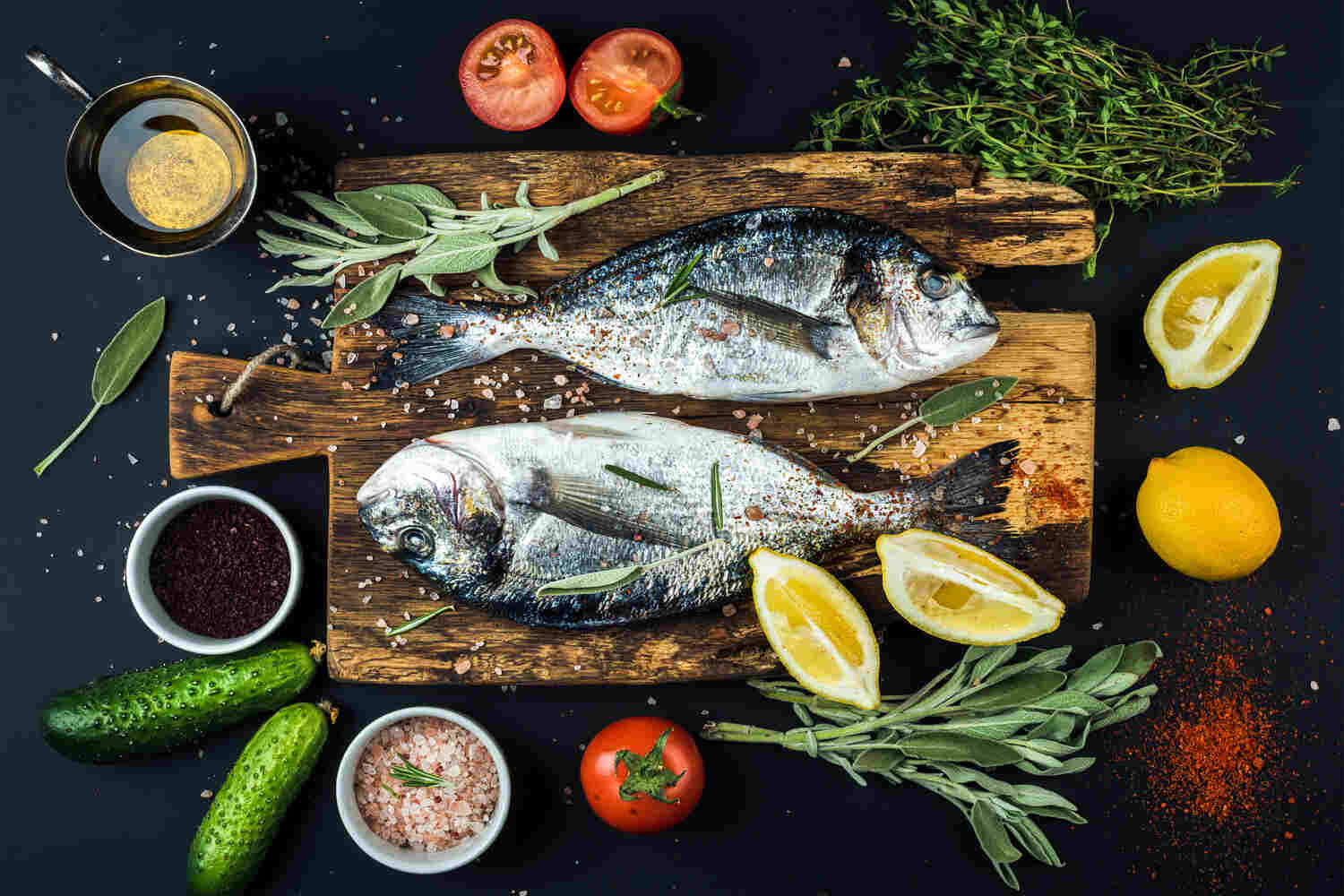 Uncooked or raw fish have higher chances of getting bacteria or parasite contamination. Salmonella and listeria are the most common bacteria found in raw fish. Pregnant women should avoid raw fish as infections may cause vomiting, diarrhoea, dehydration, and muscle weakness. Sometimes, it can enter into the foetus’s body through the placenta and result in premature delivery, stillbirth, and loss of pregnancy.
Uncooked or raw fish have higher chances of getting bacteria or parasite contamination. Salmonella and listeria are the most common bacteria found in raw fish. Pregnant women should avoid raw fish as infections may cause vomiting, diarrhoea, dehydration, and muscle weakness. Sometimes, it can enter into the foetus’s body through the placenta and result in premature delivery, stillbirth, and loss of pregnancy.
12. Avoid Processed Meat
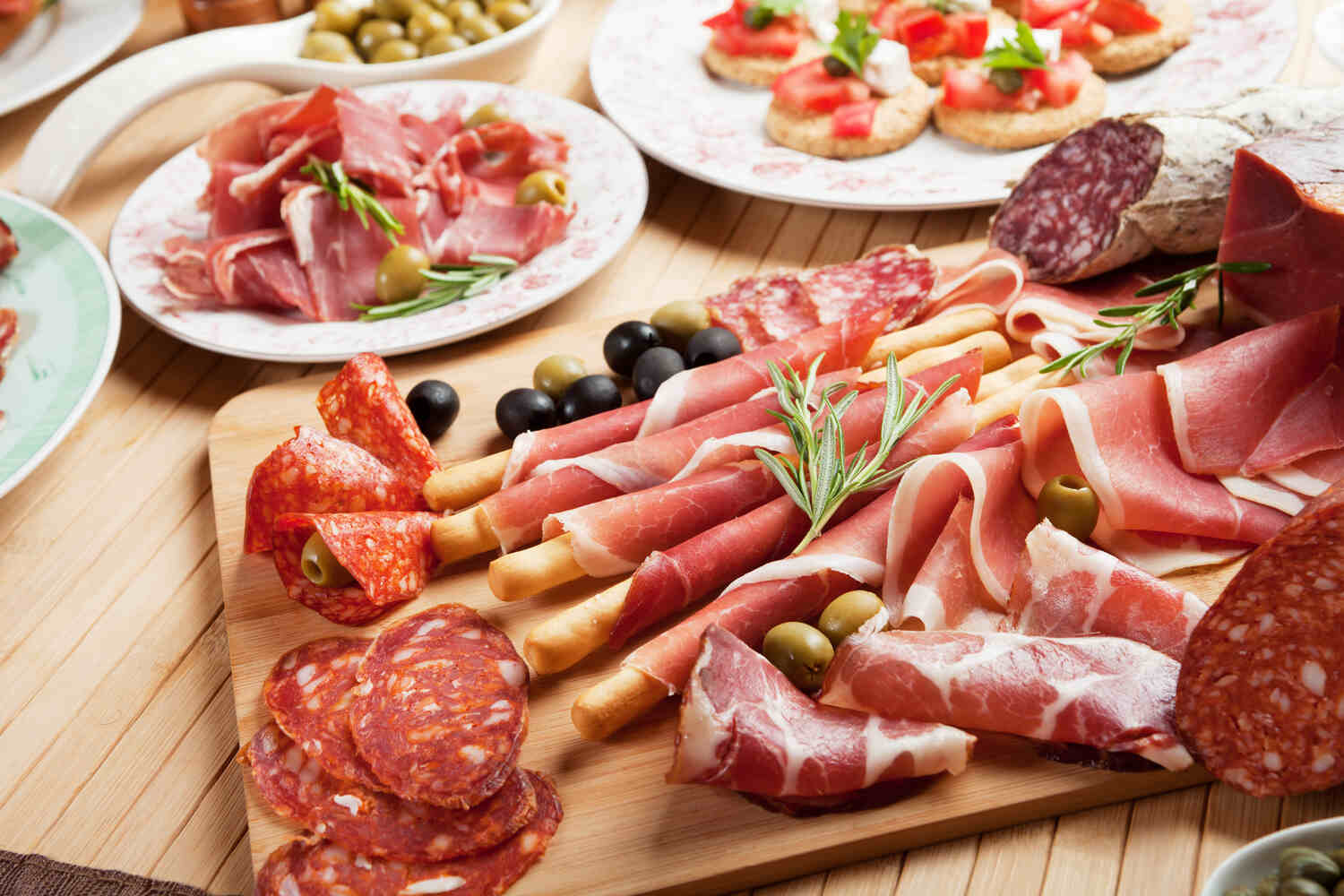 Processed meat is now entering our daily cooking. But you should check out your daily processed meat intake if you conceive. Proceed meats are getting contaminated during preparation and storage. Contaminated food is harmful to you and your baby. Despite that, it contains excess sodium and fats that must be avoided during pregnancy. We suggest replacing your processed food diet with fresh home ones.
Processed meat is now entering our daily cooking. But you should check out your daily processed meat intake if you conceive. Proceed meats are getting contaminated during preparation and storage. Contaminated food is harmful to you and your baby. Despite that, it contains excess sodium and fats that must be avoided during pregnancy. We suggest replacing your processed food diet with fresh home ones.
13. Avoid Raw Sprouts
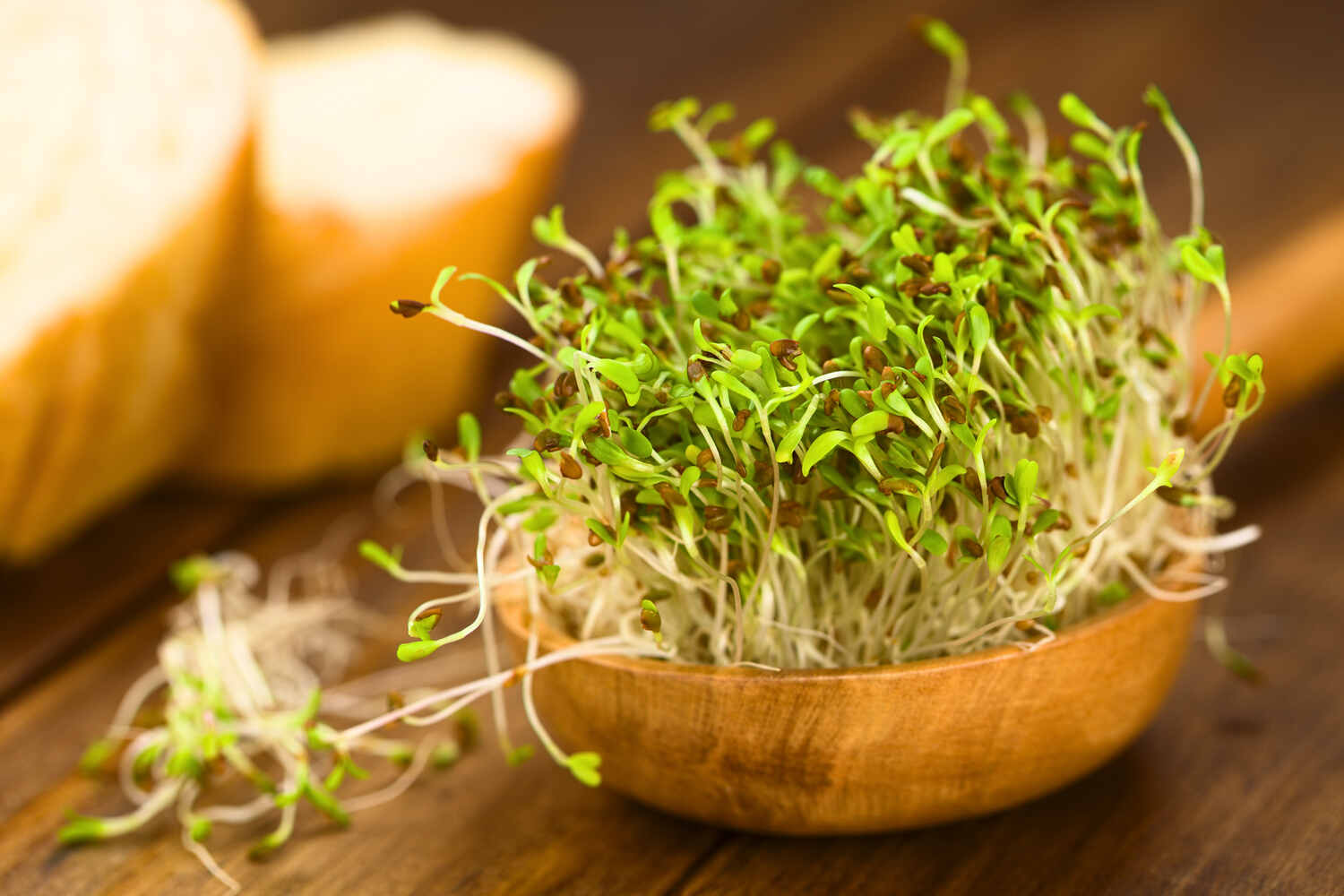 Raw sprouts are popular, healthy, nutritious foods. However, raw sprouts can develop salmonella in a humid environment, which may cause food infections in pregnant women. It’s impossible to eliminate salmonella by washing the sprouts. Thus, if you are pregnant and thinking of having raw sprouts in your daily diet, take extra precautions to avoid unwanted complications. Make sure that sprouts are stored properly to prevent bacterial proliferation. You can also cook the sprout and have it. Sprout contaminations can lead to vomiting, diarrhoea, abdominal cramps and high fever, which are eventually not suitable for the foetus.
Raw sprouts are popular, healthy, nutritious foods. However, raw sprouts can develop salmonella in a humid environment, which may cause food infections in pregnant women. It’s impossible to eliminate salmonella by washing the sprouts. Thus, if you are pregnant and thinking of having raw sprouts in your daily diet, take extra precautions to avoid unwanted complications. Make sure that sprouts are stored properly to prevent bacterial proliferation. You can also cook the sprout and have it. Sprout contaminations can lead to vomiting, diarrhoea, abdominal cramps and high fever, which are eventually not suitable for the foetus.
14. Avoid Unwashed Fruits and Vegetables
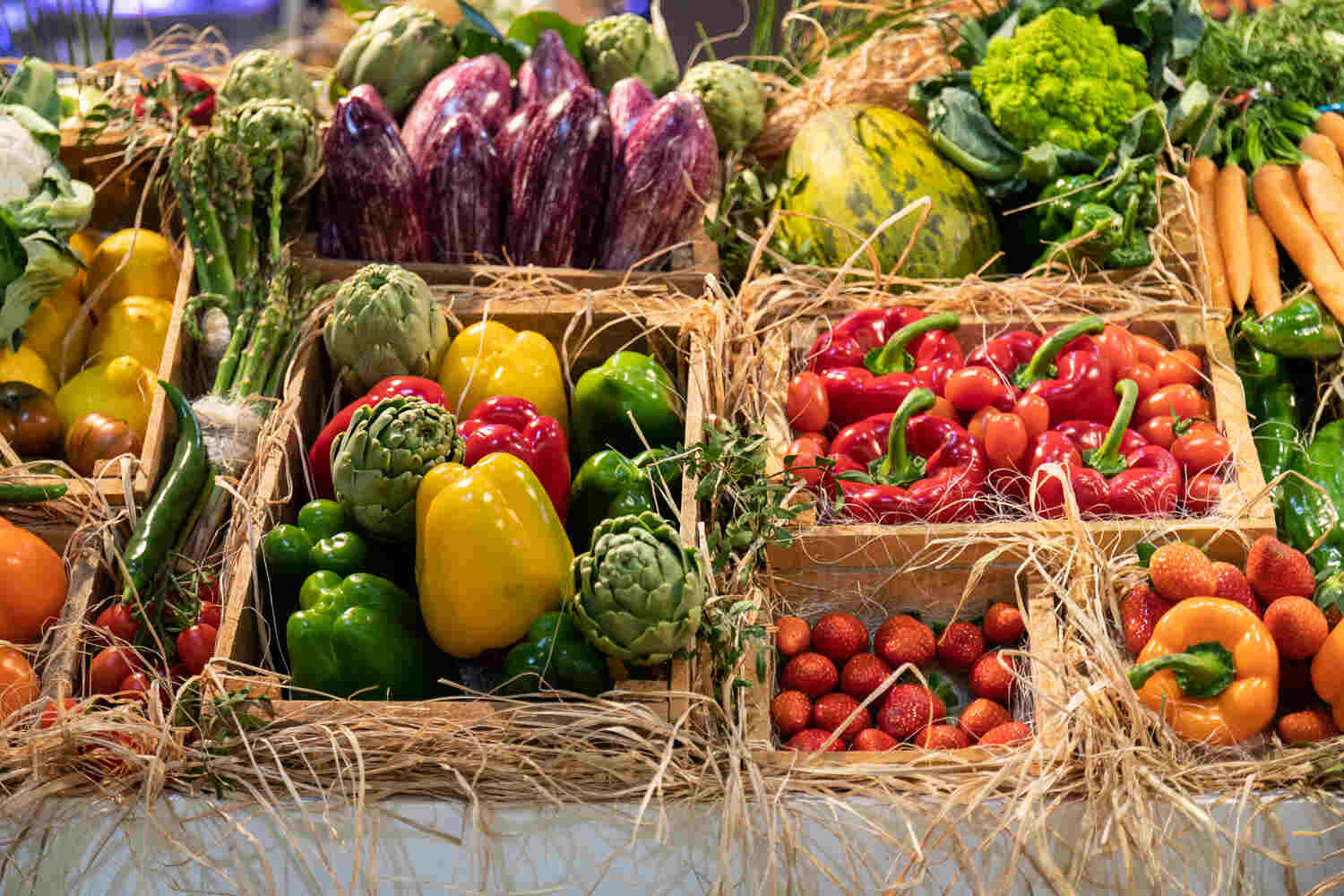 Fruits and vegetables are excellent sources of essential nutrients for the body. But need to be washed thoroughly before having them raw. Unwashed vegetables and fruits may contain multiple microbes that can harm pregnant women. Contamination occurs during harvesting, processing, storage and transportation. Salmonella and Listeria are the common microbes found in raw, unwashed fruits and vegetables. Additionally, the Toxoplasma parasite also lingers in unwashed vegetables. It can cross the placenta and enter into the foetus’s body and may cause vision impairment and learning disabilities in later life. So, as a pregnant woman, you should always practice taking cooked vegetables that are washed properly. Whenever you take raw fruits, try to wash them twice or thrice and peel them off before eating to avoid infections. You can go for fruit juices also, but ensure that it is pasteurised, and free from preservatives and added sugar.
Fruits and vegetables are excellent sources of essential nutrients for the body. But need to be washed thoroughly before having them raw. Unwashed vegetables and fruits may contain multiple microbes that can harm pregnant women. Contamination occurs during harvesting, processing, storage and transportation. Salmonella and Listeria are the common microbes found in raw, unwashed fruits and vegetables. Additionally, the Toxoplasma parasite also lingers in unwashed vegetables. It can cross the placenta and enter into the foetus’s body and may cause vision impairment and learning disabilities in later life. So, as a pregnant woman, you should always practice taking cooked vegetables that are washed properly. Whenever you take raw fruits, try to wash them twice or thrice and peel them off before eating to avoid infections. You can go for fruit juices also, but ensure that it is pasteurised, and free from preservatives and added sugar.
15. Avoid Processed Foods
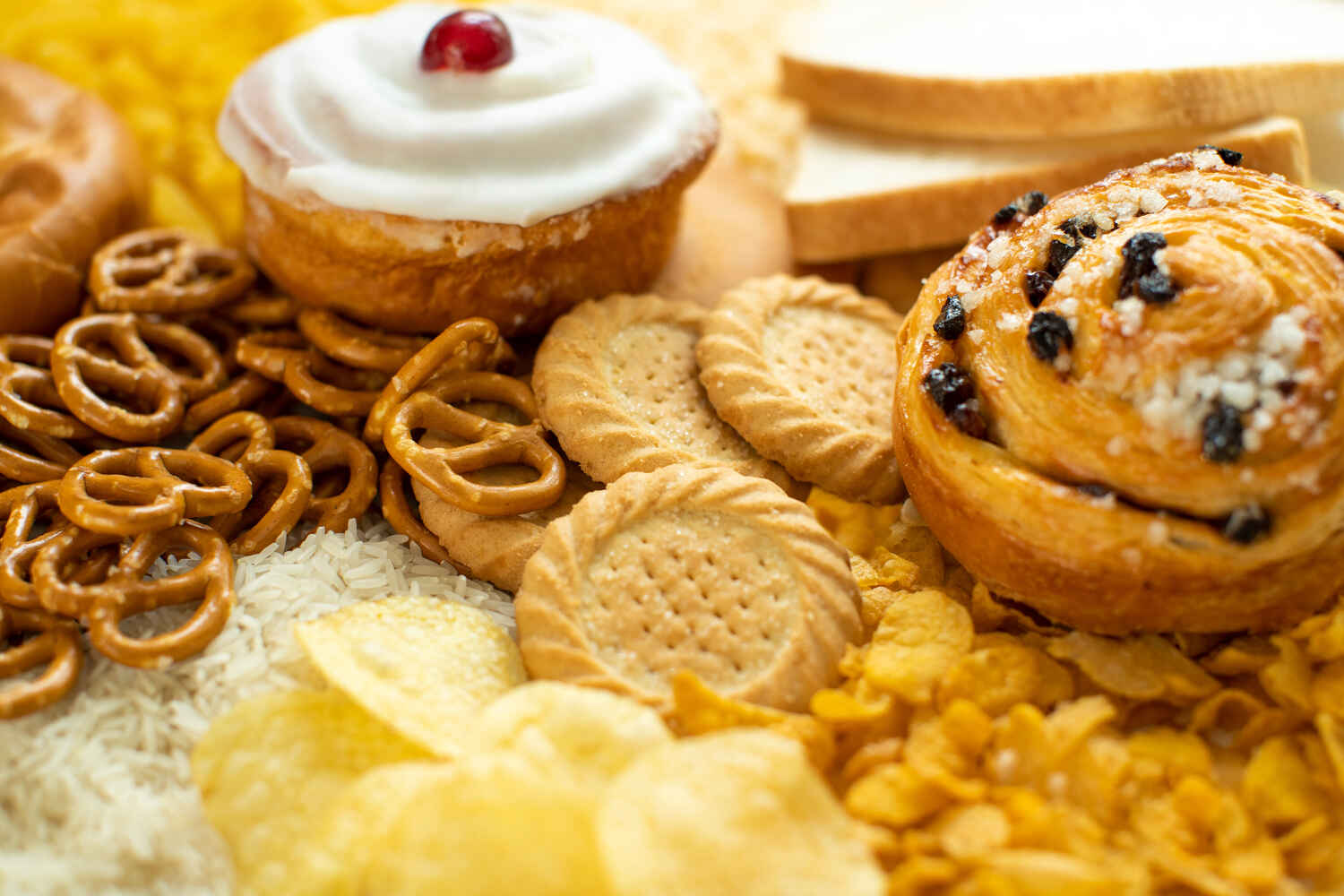 Processed foods contain high calories, simple carbohydrates and unhealthy fats. It can increase your weight significantly. During pregnancy, mothers need to eat a healthy diet rich in nutrients, not empty calories. It will make you fat and lead to unnecessary fat deposition during pregnancy that may cause complications. So, to stay healthy, follow a proper homemade diet with lots of fruits, vegetables and protein.
Processed foods contain high calories, simple carbohydrates and unhealthy fats. It can increase your weight significantly. During pregnancy, mothers need to eat a healthy diet rich in nutrients, not empty calories. It will make you fat and lead to unnecessary fat deposition during pregnancy that may cause complications. So, to stay healthy, follow a proper homemade diet with lots of fruits, vegetables and protein.
Pregnant women can enjoy their whole journey by modulating their food habits. However, most foods are safe for pregnancy when you take caution and maintain hygiene. Hope “15 Foods to Avoid During Pregnancy” will guide you regarding the risk associated with foods and how to eliminate the risk in your case.
Read more about food poisoning during pregnancy here. We wish you a healthy pregnancy ahead!
FAQ’s
1. What Not To Drink During Pregnancy?
Alcohol is strictly restricted during pregnancy. Apart from that, you can take any drinks considering their preparation and hygiene level and also avoid empty calorie drinks for your better health.
2. Which Juice Is Not Good For Pregnancy?
Raw fruit juices available on market stalls are not healthy for pregnant women as it can be contaminated with multiple microbes due to poor hygiene. You should also avoid packaged sugary and unpasteurised fruit juice, which provides unwanted calories.
3. Which Fruit Is Avoided In Pregnancy?
There is no restriction on fruits, but you should take some in moderate amounts to avoid the complication. Such fruits include pineapple, dates, mango, cherries, and papaya.
4. Are the Commonly Used Indian Spices Safe During Pregnancy?
Yes, as long as you consume them in moderation. Fennel seeds and coriander are not safe when consumed in excess. If you consume them as spices added to some dish, they can be safe.
5. Can I Consume Fenugreek During Pregnancy to Reduce Heat in My Body?
Fenugreek is a great option to cool down your body. However, these seeds have been linked to miscarriage when consumed in excess. Do consult your doctor if you must consume them.
6. Can I Eat the Sweets When Pregnant?
Yes, you can. Many pregnant women crave for sweets. These can be perfect as long as you are not suffering from gestational diabetes.
References
- Food safety during pregnancy
https://www.ncbi.nlm.nih.gov/pmc/articles/PMC2920771/ - Alcohol Use in Pregnancy
https://www.ncbi.nlm.nih.gov/pmc/articles/PMC7061927/.
